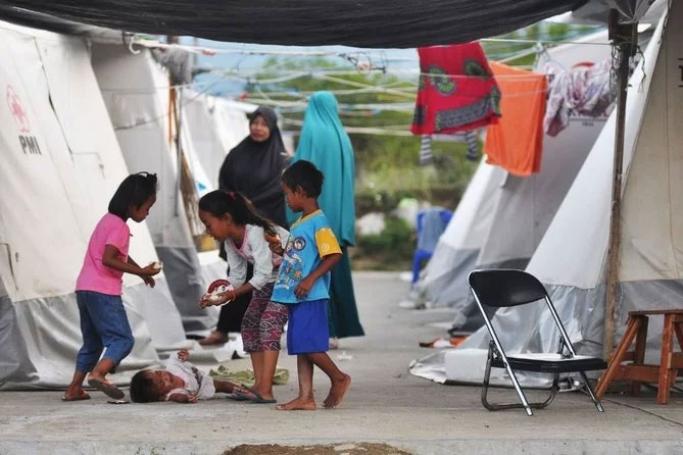Nearly 60,000 people are still living in makeshift accommodation nearly a year after a devastating earthquake and tsunami pounded the Indonesian city of Palu, the Red Cross said Monday.
The magnitude 7.5 quake and subsequent deluge razed swathes of the coastal city on Sulawesi island last September, killing more than 4,300 people and displacing some 170,000 residents.
The force of the impact saw entire neighbourhoods levelled by liquefaction -- a process where the ground starts behaving like a liquid and swallows up the earth like quicksand.
It also destroyed fishing boats, shops and irrigation systems, robbing locals of their income.
A year later, around 57,000 people "are still living in temporary accommodation, unsure where and when they can rebuild" said the Indonesian Red Cross and the International Federation of Red Cross and Red Crescent Societies (IFRC).
"We are hoping the government will redouble their efforts to identify settlement areas and help thousands of families... build permanent homes," said Jan Gelfand, head of the IFRC Indonesia country office.
Saturday marks one year since the double disaster.
Earlier the World Bank offered the country up to $1 billion in loans to get the city back on its feet.
Indonesia is one of the most disaster-prone nations on Earth due to its position straddling the so-called Pacific Ring of Fire, where tectonic plates collide.
The sprawling archipelago is also dotted with more than 100 volcanoes, including one that erupted between Java and Sumatra in late 2018 and unleashed a tsunami that killed more than 400 people.
On Boxing Day 2004, a 9.1-magnitude earthquake struck off the coast of Sumatra and triggered a tsunami that killed 220,000 across the Indian Ocean region, including around 170,000 in Indonesia.
© AFP












